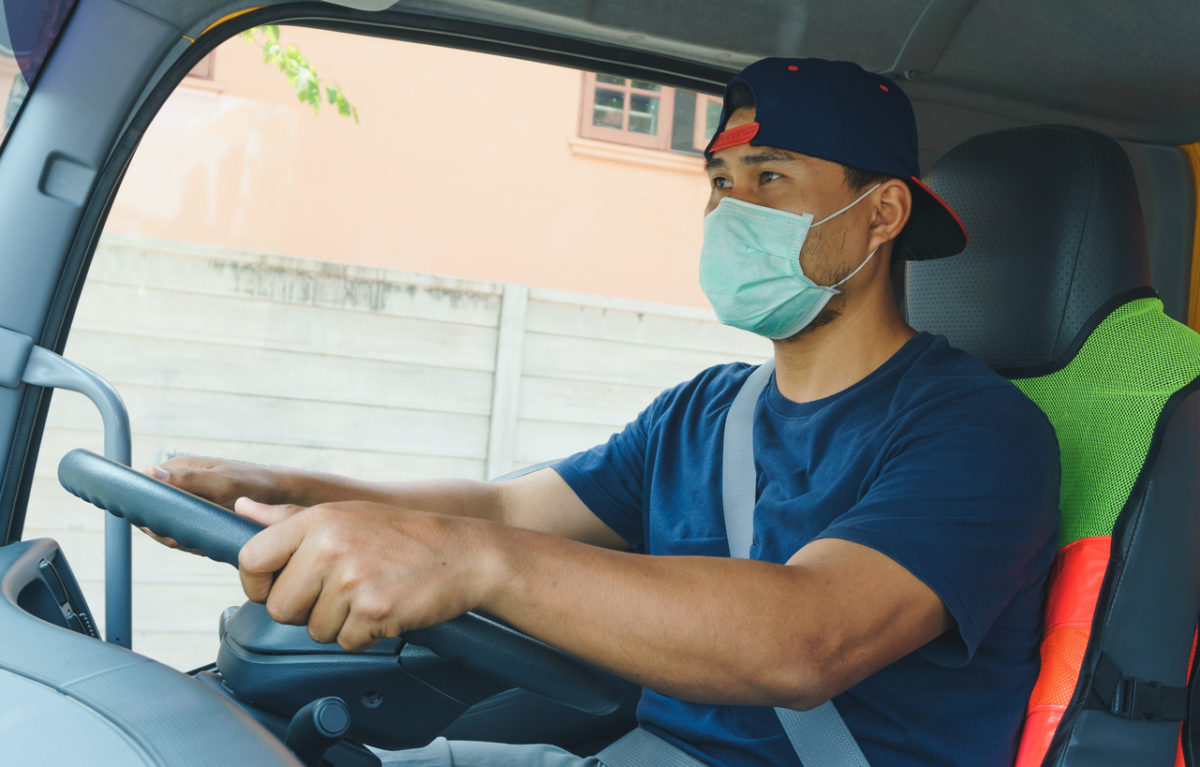The spread of COVID-19 not only affected our sense of safety and the health of people around the globe but also the world’s economy and all the operations within it as well. From local businesses to global companies, the coronavirus outbreak has disrupted how we all live. One way it affected our daily living and our economy was shining a light on the world of freight and the need for supplies to be readily available. Trucker safety is paramount during this time as the hauling of goods now is more important than ever.
Truck drivers are the backbone of the freight industry in the United States, as 75% of the country’s freight is moved on highways and roadways. Since the need for supplies has increased, it’s important to look at how truck drivers can stay safe while operating during a virus outbreak.
Here are some tips for these professionals to remember to uphold trucker safety during their daily operations amidst COVID-19.
Personal Protective Equipment
The Centers for Disease Control and Prevention (CDC) has allowed for health care staff to wear scarves and bandanas as facemasks in the event that no mask is available. And since durable facemasks, such as the N-95 mask, can be hard to come by, using these alternatives might be the best choice during pickups and drop-offs.
For eye care, truckers can wear sunglasses when coming into contact with individuals, which can help to minimize exposure. Any face covering will be effective to help minimize exposure, especially if someone near or around you is sneezing or coughing.
Filling Up
While pumping gas, drivers can maintain Trucker safety by using rags, towels, and one-time-use gloves to limit exposure to germs. If you’re able to, use a cloth or napkin as a barrier between your hands and the keypad and pump handle.
Using Cash or Credit
If at all possible, truck drivers should avoid using cash when making purchases, especially at truck stops, which see various people coming in and out all day, every day. Cash can be unclean, even without a contagious virus, such as COVID-19, going around. When possible, use card or contactless payment, such as Square or Apple Wallet, to limit any touches.
Eating On the Road
Truckers have to eat, but they also have a duty to keep themselves healthy and avoid potential risks related to the coronavirus. One alternative is to bring pre-packaged foods and meals onboard, carrying them in coolers or mini-fridges. If truckers decide to pick up food on the road, they should still avoid dining in and instead choose to-go or drive-thru options to uphold trucker safety.
When Nature Calls
Everyone has to use the bathroom at some point, but using public restrooms can create some stress for truck drivers. With germs related to COVID-19 being able to stay alive on surfaces for more than a few hours, it’s important to be vigilant about health and safety while using the restroom.
When opening doors and using handles, opt for the use of your elbow instead of your hand, or use napkins or paper towels to create a barrier. When done using the restroom, always remember to thoroughly wash your hands for at least 20 seconds.
Public Showers
Another necessary task related to trucker hygiene is the need to shower. Bringing a pair of shower shoes and one-time-use gloves to public showers can help to limit contact with germs that can live on surfaces. Be sure to bring a plastic bag to place used shower shoes in to keep the bottoms of them from touching anything.
Signs & Symptoms
It’s important to recognize the signs and symptoms of COVID-19 while out on the road. Some truck drivers may not show any signs when infected with COVID-19. However, many others do show signs, but may not think it’s related to the virus.
First, it’s important to keep in mind that it’s allergy season, so drivers with a history of allergies should take their medicine with them to weed out any potential for confusion. If signs and symptoms continue after medicine is taken, then it’s important to consider the possibility of needing potential medical attention.
Signs of potential COVID-19 infection include fever, cough, shortness of breath, loss of taste, and tightness in your chest. These symptoms can show up anywhere between two and fourteen days after contact. If a driver suspects they have contracted the virus in any way, it’s important for them to contact their doctor and the company they work for.
While these tips may not completely rid the potential that a driver falls ill due to COVID-19, awareness and education about the virus as it pertains to trucker safety can help to limit exposure and boost overall health.
About Western Truck Insurance Services
Western Truck Insurance Services is a commercial truck insurance agency with roots dating back to 1954. We have evolved into a highly respected, professionally managed, truck and transportation insurance brokerage. The hallmark of our organization is our desire to provide unparalleled service. We go way beyond what you expect to receive from an insurance brokerage. Equipped with state of the art automation, Western Truck Insurance can provide you with lightning fast truck insurance quotes, customer service, Insurance certificates, and coverage changes. Contact us today at (800) 937-8785 to learn more!

